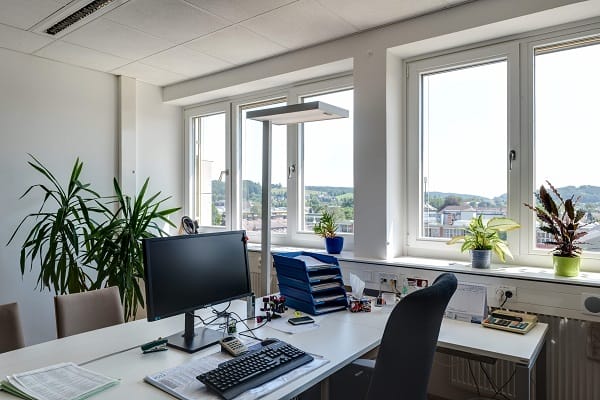What is an office? According to the Cambridge Dictionary, it is ‘a room or building in which people work, especially sitting at desks with computers, phones, etc., as part of a business’.
But to define an office in such simplistic terms is to remove much of the poetry from what these spaces mean to the people who work in them. In 2023, an office is no longer just a collection of tables and chairs – or certainly shouldn’t be.
Sure, it’s primarily a space for workers to collaborate on projects and share ideas, but it is also a social hub for them to gather, bond, and feel a sense of place in, and the importance of this point cannot be overstated.
This is because workers who are happy and engaged in their jobs are more productive than those who are stressed and feel undervalued at work. Indeed, a recent study by the University of Warwick corroborates this, concluding that happiness makes people approximately 12% more productive.
With this in mind, business leaders should be making every effort to ensure that their staff feel satisfied and comfortable in their workspace; giving them a reason to bound out of bed in the morning, rather than groan in anguish when their alarm starts blaring.
Tokenistic gestures simply aren’t going to cut it – as if they ever did – at a time when many workers have grown accustomed to working from home during the pandemic, and enjoying all the creature comforts that come with this. No, bosses should be designing office spaces that place the employee experience front and centre, instead of treating it as a mere afterthought. That means incentivising workers to come to the office by tailoring its design to meet their specific needs.
Comfortable, well-furnished social spaces and breakout areas not only give workers an opportunity to take a brief intermission from the working day, but also the flexibility to choose how they want to work.
Sitting down on a sofa with team members to discuss the proposed strategy for a campaign, or even to have a personal development catch-up with your manager, for example, can help to create a far more comfortable and convivial atmosphere than gathering in a sterile or discomfiting conference room.
After all, work is stressful enough for many people without making them work in spaces that stifle their creativity and make them feel that they are simply a ‘number’ to their employer; a chair to be filled and that can easily be replaced.
By investing in a bespoke office space that not only has a fun and friendly ambience, but also allows productivity and creativity to flourish, business leaders can truly demonstrate how committed they are to ensuring that their staff are happy and comfortable at work, as well as to the continued success of their organisation.






Leave a Comment